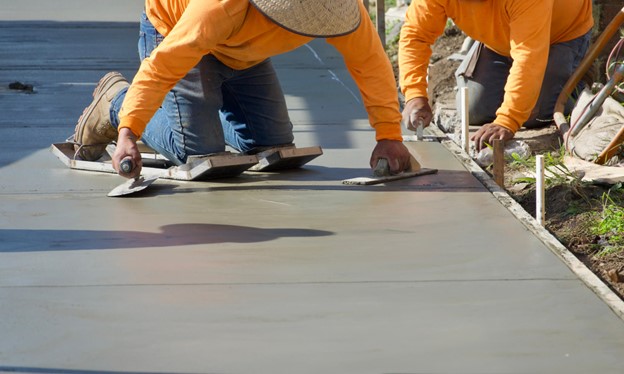Topical Sealing for Concrete Surfaces

Topical Sealing for Concrete Surfaces in Texas and Louisiana
Concrete surfaces face various environmental challenges, especially in places like Texas and Louisiana, where intense heat, humidity, and heavy rainfall can wear down even the most robust concrete surfaces. To combat this, Ashton Sawing and Drilling LLC offers topical sealing as an effective solution to protect and extend the life of concrete surfaces while maintaining their visual appeal. Topical sealers act as a protective barrier, shielding the concrete from moisture, UV rays, and other damaging elements. Below, we’ll dive into what topical sealing is, discuss its key benefits, and provide a step-by-step walkthrough of the sealing process.
What Is Topical Sealing?
Topical sealing is the process of applying a protective layer to the surface of concrete, often in commercial and industrial settings. Unlike penetrating sealers that seep into the concrete, topical sealers create a durable, water-resistant layer on top, providing both protection and aesthetic enhancement. Topical sealers come in various types, including acrylic, epoxy, and urethane. They can be used on a variety of concrete surfaces, such as industrial flooring, warehouses, loading docks, and decorative commercial spaces. Topical sealing is especially effective for preserving the look of stamped or colored concrete while safeguarding against water, UV rays, chemicals, and stains. With the ability to deliver a glossy or matte finish, topical sealing not only protects but also elevates the appearance of concrete surfaces, making it a practical and aesthetic choice for high-traffic or demanding environments.
Benefits of Topical Sealing for Concrete Surfaces
Why should you consider topical sealing for your concrete surfaces? Here are some compelling reasons:
- Protection Against Water Damage – Sealing concrete surfaces with a topical sealer minimizes water penetration, preventing cracks and weakening caused by excess moisture. Our concrete waterproofing services are especially crucial in Texas and Louisiana, where water damage can be a recurring issue.
- Enhanced Durability – A properly sealed concrete surface is more resistant to wear and tear caused by foot traffic, vehicle use, and exposure to weather elements. This translates to long-lasting surfaces that require fewer frequent repairs.
- Improved Aesthetic Appeal – With topical sealing, you can choose from various finishes, such as high gloss, matte, or satin, to suit your design preferences. It’s also an excellent option for decorative concrete, as it preserves the look of stamped patterns, textures, and custom stains.
- Resistance to Stains and Chemicals – For surfaces exposed to oils, grease, or harsh chemicals (think warehouses or industrial floors), a topical seal adds a barrier that makes cleaning easier and prevents deep staining.
- UV Protection – Concrete in sunny areas like Texas can fade or discolor over time due to UV rays. Topical sealing provides a protective layer that reduces this damage, maintaining the concrete’s original color and vibrancy.
- Cost-Effectiveness – Despite an initial investment, sealing your concrete can save you money over time. It prevents costly repairs, reduces maintenance needs, and prolongs the life of your surfaces.
Steps Involved in Topical Sealing
The process of sealing concrete involves several crucial steps to ensure optimal results. Here’s a breakdown of the process for effective topical sealing:
- Surface Preparation – We ensure the surface is thoroughly cleaned by power washing to remove dirt, grease, and debris. In addition, we address cracks or uneven areas before sealing to create a smooth, even finish.
- Test for Moisture – Excess moisture can prevent the sealer from adhering properly. We conduct a moisture test by sealing a small section with plastic for 24 hours. If condensation develops, we allow more time for the surface to dry.
- Choose the Right Sealer – We help you choose a topical sealer that suits your needs, such as acrylic sealers for decorative purposes, epoxy sealers for heavy-duty surfaces like industrial floors, or urethane sealers for strong resistance against chemicals and stains.
- Application of the Sealer – Depending on the size and texture of the surface, we use a roller, brush, or sprayer to apply the sealer. We apply a thin, uniform layer and avoid applying too much sealer at once to prevent bubbling or uneven finishes.
- Drying and Curing – Topical sealers generally require 24-48 hours to dry fully. During this time, it’s essential to restrict foot traffic and avoid placing heavy objects on the surface.
- Maintenance – To keep your sealed surface in top condition, reapply the sealer every 1-3 years, depending on the level of use and weather exposure, and clean it regularly with pH-neutral cleaning solutions to maintain its appearance and protective properties.
Contact Us Today for Concrete Surface Protection
Topical sealing is a smart investment that offers both practical and aesthetic benefits. From preventing cracks in heavy-traffic areas to ensuring long-term durability for industrial flooring, this process delivers both performance and cost-efficiency. If you’re ready to give your concrete surfaces the protection they deserve, contact us today. We’ll help protect, enhance, and prolong the life of your concrete surfaces. There’s no better time to explore professional concrete sealing services that ensure lasting results in challenging climates.
